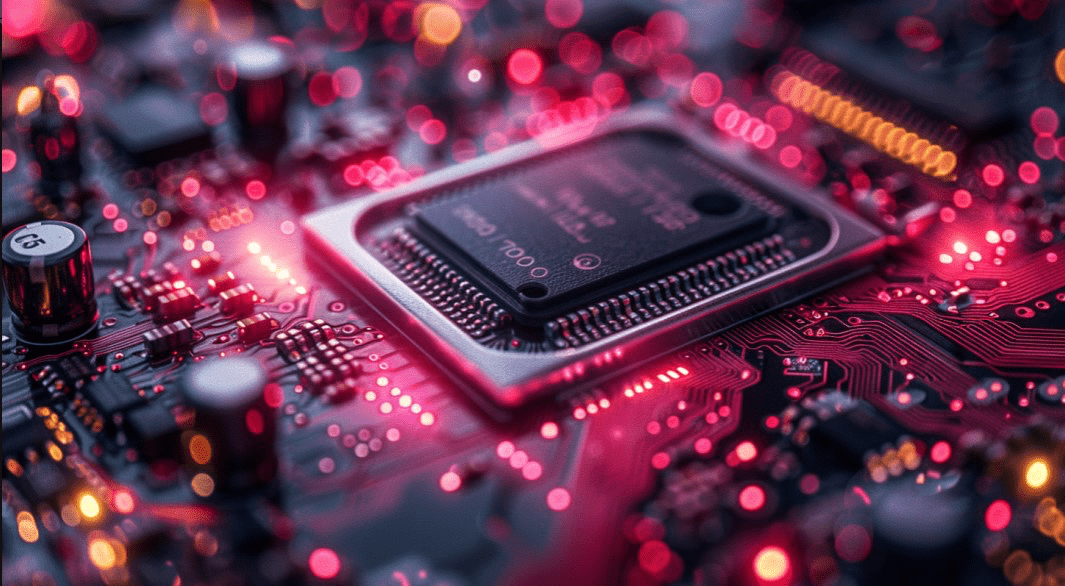Brandon Bourn and Collin Stoner, founders of Zenode, are tackling a persistent challenge in hardware engineering: why are engineers still bogged down by manual design processes that have not changed much in decades, especially in an age where machines that can learn and adapt exist? As a remedy, Brandon and Collin are rethinking the electronics design process with AI, starting with their newly launched search engine for electronic components.
Zenode’s core innovation is an AI model that can read and understand component datasheets, the instruction manuals for the processors, power supplies, sensors, etc. that lay at the heart of modern electronics. Using that model, the team seeks to automate many of the mundane and repetitive tasks that plague development, thus leading to faster design and production without sacrificing precision. For Brandon Bourn and Collin Stoner, the goal is to let AI handle the heavy lifting so engineers can focus their energy on the creative side of the job, making the entire process smarter, quicker, and more efficient.
Fitting Hardware Into a Software-Driven World
In a world that often celebrates software achievements, hardware development can seem slow and mundane to those on the outside. On the other hand, hardware is the unsung hero of modern innovation to those within the industry. For every sleek smartphone or powerful supercomputer, there is a labyrinth of circuits powering its functionality. Creating these circuits—the printed circuit boards (PCBs)—is tedious, but a single misstep spells disaster, aseach design must account for hundreds, sometimes thousands, of components, ensuring they fit perfectly within strict space and power limitations.
This is where Zenode enters. “We are fast returning to the time where hardware development again becomes the bottleneck for innovation,” Brandon Bourn explains. “With AI, we are trying to remove or at least reduce that barrier.”The company’s first product is an AI search engine to assist engineers in finding the best parts for their designs. This tackles the very first step in the design process, where engineers traditionally spend countless hours reading through potential component datasheets before building out their initial BOM and moving into their CAD software. Much of this time is wasted reading parts that won’t work for their needs, but before AI, there was no way to know this without first reading through hundreds of pages of dense engineering information.
A New Spark: AI Ignites the Future of Hardware Design
The potential impact of this technology is massive. Based on the industry’s current pulse rate, the demand for smaller, faster, and more energy-efficient hardware is expected to soar in 2026 and beyond. Yet innovation often hits a wall when traditional tools cannot keep up. Zenode’s AI could change that, allowing companies to push the envelope on everything from consumer electronics to autonomous vehicles.
Zenode operates as the first ever intelligent search engine for electronic components, transforming how engineers approach circuit design. Unlike traditional online catalogs—which require heavy amounts of user interaction to determine categories, set filters, and read datasheets—Zenode uses a large language model (LLM), allowing users to enter natural language queries. Essentially, it lets the AI sift through the thousands of options to find the most relevant parts. Engineers can narrow their search to meet precise specifications by applying parametric filters. And when key information is buried in the datasheet instead of the specs, Zenode’s Deep Dive allows users to get answers across all the parts in seconds, instead of slogging through them one by one.
Zenode: Where AI Hype meets Engineering Reality
2025 may well go down as the peak year for AI hype, but Zenode takes a different approach. In sharp contrast to the sea of “software for hardware” competitors raising millions of venture capital on promises of one-click design automation, Zenode refuses to over-hype their capabilities. “We’ve been in this industry for over a decade, we know better than to overpromise and under-deliver,” said Brandon. “AI is powerful, but hardware development isn’t something you can shortcut.”
As for what’s next, the company is keeping a tight lid on expectations. “Developing AI is very different from traditional software,” says Collin Stoner, co-founder and CTO. “It can work fantastic in a sandbox, but then users change a few words in a prompt and it doesn’t work at all. Given that a single mistake during hardware development can easily cost tens of thousands of dollars, ensuring a high level of accuracy isn’t optional, it’s table stakes.”
Despite their refusal to give into the hype, there’s a quiet confidence in how Brandon and Collin talk about the future. Zenode’s roadmap might be staying under wraps, but the subtext is unmistakable: AI is going to change how (and what) engineers can build.





























